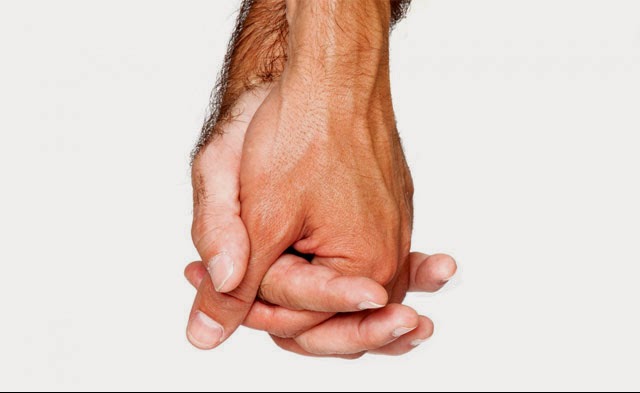In the UK, a trans poly runs for Parliament
Can an out transgender poly woman get a respectable showing in an election for important public office? Testing that question is Zoe O'Connell in the U.K.
You may remember her from this story in The Guardian two years ago about her very out queer triad. She's running for Parliament in the May 7th general election, as the Liberal Democrat candidate in the mostly rural district of Maldon, Essex, described as "ultra-safe Conservative." The longtime Conservative incumbent won re-election the last time around by 41 percentage points.
The Lib Dems are Great Britain's third-largest party and hold about 10% of national and local elected offices. O'Connell's identities have been getting her a lot of press outside the district, some of it nasty. This morning The Independent, a leading national newspaper, interviews her:
Zoe O'Connell: Transgender Liberal Democrat candidate explains why being transgender and polyamorous isn't a big deal
O'Connell (left) takes a selfie with Lib Dem party leader Nick Clegg. (Original caption: "The MP hopeful has attracted the attention of the tabloid press ahead of the General Election.")
By Helen Nianias
Zoe O'Connell is hoping to become MP for Maldon, Essex, and pledges that if she's elected she'll push the equalities agenda.
However, what has primarily captured peoples' imaginations recently is the fact that O'Connell was born male, and is in a polyamorous relationship with two female partners.
IT specialist O'Connell realised she was transgender on October 13 2005. "For some people it’s a gradual realisation, but for me it was a light bulb moment," she told the Mirror.
O'Connell, whose wife Sylvia stayed with her during her transition, started dating her now-girlfriend Sarah while they were going through the process of transitioning at the same time. Now Sylvia, Sarah and Zoe have a harmonious poly relationship.
The Daily Mail remarked that "of course" O'Connell was Lib Dem, but she is unbothered by any criticism. She explains: "Someone said years ago with being gay that you don’t just come out once, you come out repeatedly. And then after a while you just get bored and you stop caring."...
The Independent: Hi, Zoe. Does your experience make you a better politician?
Zoe O'Connell: "Anyone who’s got a lot of life experience is going to be a better MP. In that regard, yes. My story is unique to me, everybody else has their own stories that are going to be different."
Are we starting to make progress in terms of candidate diversity?
ZOC: "I think so, there’s another candidate who’s poly, and other Lib Dem candidates have came out as having HIV."
I suspect if you’re polyamorous you’re also really good at organising things.
ZOC: "[Laughs] Yes we use calendars on iPhones a lot and we used to use Google calendars before that came along but I have no idea how people managed it before. I think it was possible – there's a polyamorous relationship in Girl With The Dragon Tattoo – that one’s a "V" rather than a triangle, but that’s handled very well."
Does it help people relate to you, because the media coverage is so personal?
ZOC: "People will appreciate the honesty. It’s kind of like just saying: ‘I am who I am’."
Do you think people respect that?
ZOC: "Certainly the kind of people who would vote Liberal [laughs]."
How do your partners feel?
ZOC: "Sarah’s a former council person, so she’s used to the press. Sylvia’s not really the media type, so it’s not been a problem... As long as you’ve learned to accept it yourself, what other people think matters less. A lot of stress can be cured by going: ‘You can’t be worrying about what other people think.’"
Here's the original (April 27, 2015).
Update: This longshot of a campaign may not be as quixotic as it sounds to an American. I'm told that in Great Britain, you don't have to live in the district you run in. So, political parties often try out would-be candidates in hopeless districts to see how well they handle a campaign. Those who prove themselves may then be "promoted" to run in a district where they have a chance.
Similarly, a would-be candidate who wants to get the attention of party leaders can run in a sacrifice race, in a district the party's other candidates are not interested in, to show what they've got.
This would explain why such an alternative person as O'Connell, who thrived in the college-town hotbed around Cambridge University, is running in such a place as Maldon, Essex. Even if the incumbent wins by 41 points again next week, O'Connell may achieve what she needs, and we may be hearing more from her.
Election result update, May 8: As part of the Conservative sweep and Lib Dem wipeout, O'Connell got 4.5% of the Maldon vote; the Conservative incumbent got 61%.
[Permalink]



